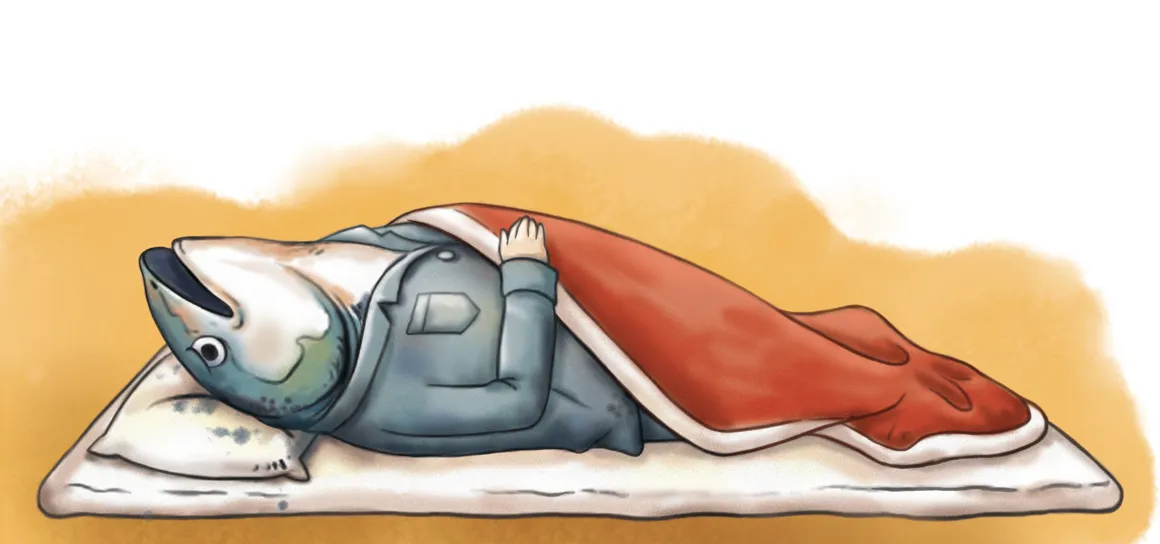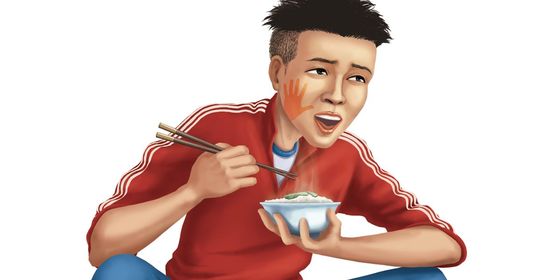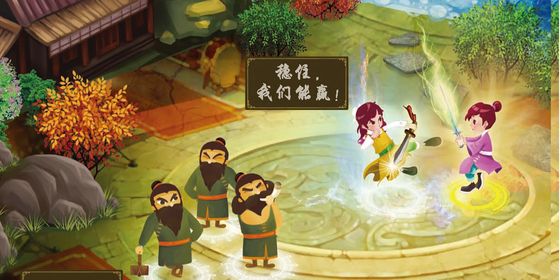Apathy slang for the despondent Chinese youth
“Why does youth have to be spent running and sweating?” asks a character in the hit Japanese movie Setoutsumi. “Why can’t it be wasted by idling on the riverside?” The question resonated with many of the film’s young fans, struggling to find their place in a society where the avenues for advancement are limited and the pressures to succeed are overwhelming.
The previous generation maintained a “no pain, no gain” attitude and spent their lives struggling for a better future, “eating bitterness” all the while. But increasingly, the post-1980s and 90s generations are embracing a completely different approach toward life: They hate to be “motivated,” have little interest in material success, and happily define themselves as nobodies, even losers. Indeed, there’s now a term for this phenomenon—丧 (sàng), a Chinese character associated with funerals, meaning disheartened, dispirited, or depressed.
The origin of sang can be traced back to 2016, with a viral screenshot from 1993 sitcom I Love My Family featuring actor Ge You lying on a couch, staring blankly into space. The picture soon became a meme, “Ge You Reclining,” and is now regarded as the iconic sang posture.
The word can be used simply as an adjective. For example, if your friend is being a downer, you can stop them by saying: “你怎么那么丧啊?” (Nǐ zěnme nàme sàng a? Why are you so demoralized?). In other cases, 丧 can refer to an entire culture, one in which many people feel it’s acceptable to live an aimless, passion-free, and spiritless life.
Another phrase, 小确丧 (xiǎoquèsàng, “small certain sadness”), has come to describe those unavoidable depressing incidents in life. This was an inversion of Japanese writer Haruki Murakami’s term 小确幸 (xiǎoquèxìng, “small solid happiness”), intended to encourage people to find happiness in life’s small surprises. However, sang people are more interested in mottos full of “negative energy,” known as 反鸡汤 (fǎnjītāng, “anti-chicken soup,” in reference to the popular self-help books), which offer a cynical counter-balance to the social-media pablum of “inspirational sayings.” One example: “If you are deceived by life, don’t despair, don’t get mad, because it will happen again tomorrow!”
Inevitably, some have sought to capitalize on the culture. Last year, Sung, a teashop franchise, began opening in China’s major cities. Customers who wanted a sip of bitterness could peruse a menu of misery, which included such life-unaffirming beverages as “Nothing Achieved” black tea, “Dumped by a Lover” green tea, “Salary Never Raised” fruit tea, and “Your Ex is Living Better Than You” latte.
Of course, much of this defeatism is intended as tongue-in-cheek humor, a passive-aggressive performance aimed at rejecting a society that has already “rejected” them. “I wanted to fight for socialism today but the weather is so freaking cold that I’m only able to lie in bed, playing on my phone,” sang personality Zhao Zengliang joked on her blog.
Faced with skyrocketing house prices, cut throat competition for jobs, and increasing pressure to marry, many choose sang just to deal with the stress. In order to describe a sang person accurately and vividly, metaphors are often employed. One frequently used term is 咸鱼 (xiányú), or “salted fish.” In Cantonese, a salted fish is a metaphor for a corpse, but can now mean people who have no intention of doing anything. “做人如果没有梦想,和咸鱼有什么区别呢?(Zuò rén rúguǒ méiyǒu mèngxiǎng, hé xiányú yǒu shéme qūbié ne? If a person has no dreams, how do they differ from salted fish?)” asks a character in the kung-fu comedy Shaolin Soccer. However, sang people find it preferable to be a salted fish. They would say: “我差不多是条咸鱼了。(Wǒ chàbuduō shì tiáo xiányú le. I am practically a salted fish. )”
Another term from Cantonese, literally meaning kindling, 废柴 (fèichái), is also popular; 废柴 means “good-for-nothing,” with 废 (fèi) indicating worthless, waste, or disabled. Other things can also be 废.
Whenever you are tired, frustrated or stressed, you can say, “我基本上是个废人了。 (Wǒ jīběn shang shì ge fèirén le. I am basically an invalid),” or post a meme of a lazy cat with the caption, “我已经是只废猫了。(Wǒ yǐjīng shì zhī fèimāo le. I have already become a wasted kitty).” For many people, being useless is not shameful, because their goal is “做个废柴, 保持可爱。” (Zuò ge fèichái, bǎochí kě’ài. Be a piece of wasted wood and stay cute.)
So, next time you’re feeling low, throw away that bowl of chicken soup, lie down like Ge You, and embrace that inner sang—you’re not alone!
Sad Sangs is a story from our issue, “Fast Forward.” To read the entire issue, become a subscriber and receive the full magazine. Alternatively, you can purchase the digital version from the App Store.














